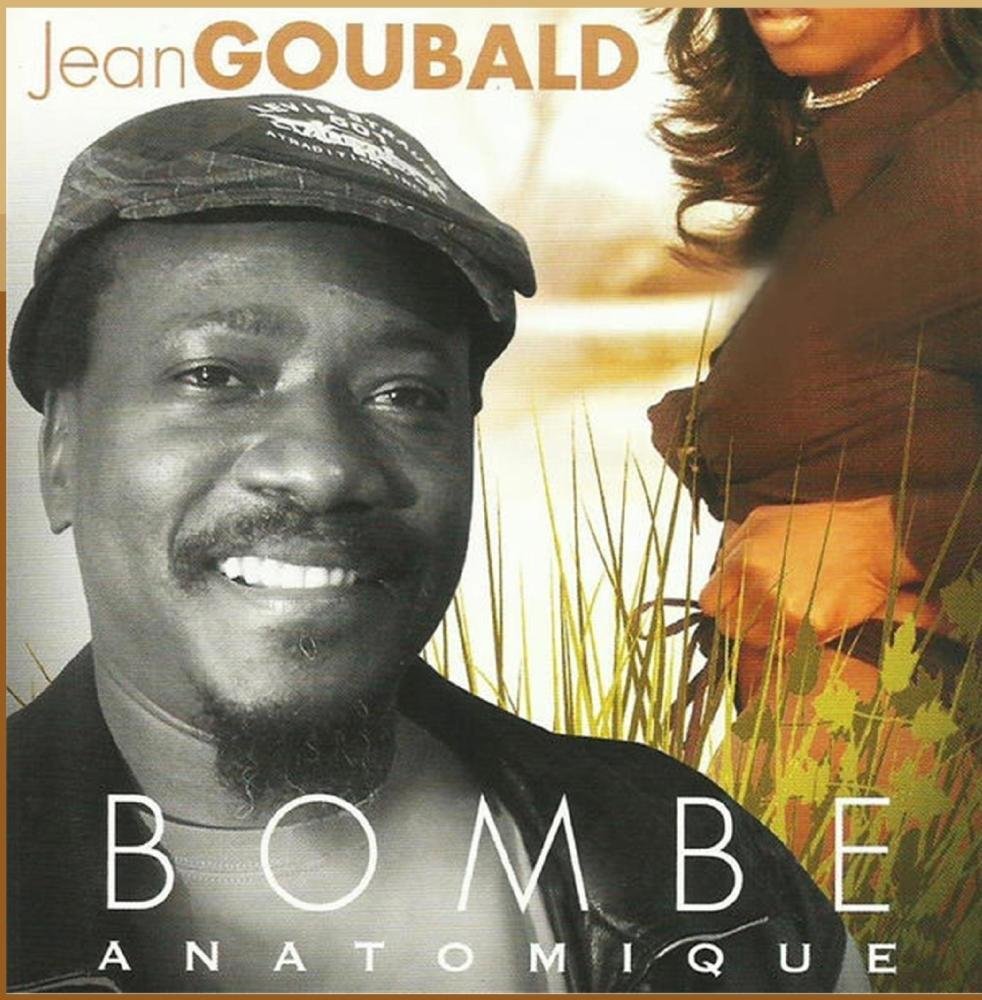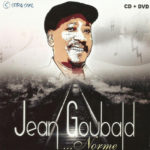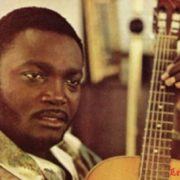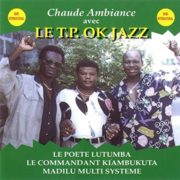
Short Bio of Jean Goubald
Jean-Marie Kalala Midibu, known as Jean Goubald, is a Congolese socially engaged guitarist, singer, songwriter, philosopher, comic and political figure. He was born in Mbuji-May in the Democratic Republic of the Congo (DRC) on May 22, 1961.
His catholic education heavily influenced his personality and taste for music. Goubald frequently raises the alarm against modern popular Congolese music, referring to them as monotone, or “Monstrosities that make us dance”. He fully embraces this way of looking at things beyond the music context, openly criticizing the lack of moral and other vices of the Congolese society.
Beyond writing and singing songs that aim at building a better world, Jean Goubald engaged in politics in DRC. He applied for and won a national parliament sit from Kinshasa, only to be radiated from the final list, in electoral litigation, courtesy of a pretty controversial Congolese Constitutional Court.
Let’s go back to the origin of this interesting Congolese philosopher artist.
Bayibi Nga Bomuana (They stole my infancy) by Jean Goubald. In this song, Goubald puts himself in a child soldier’s shoes and talks about the life he would have preferred to live.
Here is our apple fan’s version.
Early life
Goubald was born Jean-Marie Kalala Midibu. Kalala stands for the general or army minister, while Midibu means a vast network. He was born in Mbuji-Mayi city, in the Kasai region, in a family of seven children.
Jean’s father was to become a catholic priest and even attended the grand seminary. Unfortunately, and fortunately, he did not make it through the vows. He lived as a laic and public servant and founded his family. Jean Goubald frequently stated that his mother gave him his real sense of humor while his father gave him a taste for books, reading, and intellectual stuff. His mother shaped his song’s content through his character while his father helped with the vessel.
Jean learned his first guitar chords when he was five years old. Ever since then, he grew up with an appetite and curiosity for music. Although he went all the scholar path until university, he maintained some connection with the music universe, both in learning and practice.
First, young Jean studied primary school at college Albert 1er, known nowadays as College Boboto in Kinshasa. He was involved in playing the school’s theater group. The curious and multi-talented Jean also sculpted his first guitar out of wood at age 10. He even custom made a baby-foot toy that helped him raise some money.
Later for his high school, he joined the Saint-Théophille school in Lemba neighborhood, still in Kinshasa. Goubald studied mathematics and physics, nourished with the ambition of an air pilot career in the future. His talent and interest in music kept growing though. Indeed, Goubald composed a song titled Longembo (the bat) during that period. The song would later be interpreted by Congolese superstar Papa Wemba.
Longembo (The bat) by Jean Goubald. Jean Goubald gives his take on why Africa lingers behind other continents. Goubald’s version seems more original than Papa Wemba’s.
Fully Committed
Then came the University of Kinshasa era. Goubald submitted his application for a degree in economy or polytechnical engineering but also opted for pharmacy as a third choice. He was selected in pharmacy first and went with it, although his name later appeared in the economy section. Twice, he could not make it through the first year in pharmacy though. Therefore, Goubald decided to fully embrace his passion since he was five. That was around 1985-86.
As said earlier Goubald experienced Congolese music even prior he fully dedicated to it. He collaborated with a number of renowned musicians and was playing at venues alongside them. For instance, he collaborated with Papa Wemba as mentioned before, but also other musicians. He was a member of the band “Les Étoiles” back in Lemba, collaborated with Tabu Ley Rochereau, Mbilia Bel, Kalama Soûl, Youlou Mabiala, and iconic band Zaïko Langa Langa to name a few. He joined Gérard Madiata, and later Okwess band along with the enigmatic artist Jupiter, prior to going solo.
Elou by Jean Goubald. This is a love song to Elou. In a heartbreaking statement during an interview, Goubald said he included Elou to Bomb Anatomic (his first album) only to please the Congolese public that was used to monotonous three chords rumba songs. The statement doesn’t do justice to a very well written piece.
Solo Career
Jean Goubald started his solo career after leaving Jupiter and his band Okwess. He started gaining stature in the Congolese music landscape, mostly participating in events, festival and television programs while working on his solo album. In 2005 he released his first solo album titled “Bombe Anatomic” (Anatomic Bomb). The album received very positive criticisms. It combined the typical Congolese rumba love songs like Elou, Emi and Eve with more sophisticated awareness-raising and educational songs like Bayibi Nga Bomwana and Africano.
The same period, Goubald was appointed secretary and spokesperson of the Amical des Musiciens Congolais (AMC). AMC was a promising association of high profile Congolese musicians. The association went silent for years now. According to Goubald, the lack of humility among musicians, each one being more important caused it. That’s another story though.
In 2007, Goubald recorded a live acoustic performance of Bombe Anatomique, with only his guitar and his voice. The performance where released into an album titled “Où-Est-Il ?” (Where is he?). I personally find all acoustic versions way better than their studio siblings. You can get a taste of it here.
Nine years after the release of his first album, in 2014, Goubald released “Norme”. Norme was technically the third album but it is mostly referred to as his second release. As per my observations, Norme did not meet the excitement of his first opus, despite being equally engaging and interesting.
Philosophy
Now moving on an interesting facette of Jean Goubald. The first time I heard him speaking, I immediately thought about Bob Marley or Mick Joe. Most of you probably know Bob Marley, so I won’t spend much more time one him. However, I do not expect any of you to know Mick. I am not sure knew him that much either.
I met Mick when I was very young, like ten or eleven years old, in some neighborhood of Kinshasa. He gave my older brother a taste for guitar but that’s not the point. Mick Joe had a free mind. A kind of Congolese hippy I guess. His take on life transcended money and most vanities. He liked reading and educating himself and did not buy into the rat race that is today’s common definition of success. Mick was a humble guy growing his own vegetables, telling me about inventions and the experiments he was working on. He really got me intrigued and opened my imagination to many things.
I felt the same as I heard Goubald talking. The difference between his discourse and those of most Congolese musicians was clear. Jean Goubald keeps properly feeding his thoughts and you notice it through his reasoning. There is some similarity with late Abeti Masikini too, who tried to bring an innovative and really nice kind of music to Congo. The Congolese public’s response was something like “huh, thanks but we’re fine as we are”. She initially went unnoticed before altering her style to please them. Today some of us look back on her music and its spirit and feel its real value.
Goubald philosophy, to call it so, blends Christianism, humility, the desire for continuous learning and improvement, and living in the present. He recognizes went things do not work the way they’re supposed to in society and tries his best to address them.
In music, for instance, Goubald raised a number of concerns. He went against immoral lyrics and monotony in songwriting and frequently pleads for more researched and educational music. Another example is that Goubald went back to school and earned a Bachelor of Science in philosophy from Saint Augustin University in Kinshasa in June 2018.
Il y a des humain qui ont encore une forte dose d’humanité en eux, je crois que j’en fais partie.
There are some humans who still have a strong sense of humanity in them, and I believe I am one of them.
— Jean Goubald.
Eve “Norme” by Jean Goubald and Lokua Kanza.
Political Career (Sort Of)
I like to imagine that at some point, Goubald realized there was a better way to positively influence things in his country than just with art. Whatever his motivation, he formally boarded on politics with DRC’s 2018 Elections. Goubald picked an opposition electoral platform and applied for both a provincial and a national parliament seat. At the issue of the elections in January 2019, Goubald won a seat at the national parliament. Great, right? Well, not really. This is DRC and unexpected things happen.
Early in June 2019, after the election litigations period was due, the Constitutional Court started “invalidating” some members of parliaments in favor of former candidates, based on previous complaints. Unfortunately for Jean Goubald, he was part of the unlucky cohort and lost his seat. But the story did not end there. Frankly, it would be a pale version of the DRC if it did.
So at the end of June the same year, after a lot of public attention and, waves of dismay, the Constitutional Court backpedaled. They released a corrective note which put Goubald and other elected members back to the Parliament. Fantastic happy ending right? Well not really. Remember we’re still DRC. So, early in August, the same Constitutional Court sent the final list. A sort of correction of corrections. This time around, Goubald name went missing and that’s the last episode so far.
Following the unfortunate venture, Goubald renewed with his public on August 17. He never really left anyway, but only opened the politics door, according to himself. Hopefully, Goubald will be able to contribute more to the development of the so rich yet poor DRC.
Norme by Jean Goubald and Lokua Kanza. In Norme, Goubald criticizes distortions of modern society.
Where does “Goubald” come from?
During an interview, Jean explained the origin of the “Goubald”, which was a mystery for me too. The story goes that one day long ago, Jean-Marie (Goubald) banged into one of his friends during a soccer game. Those moments hurt. There’s always one that hurts more than the other though. At that specific encounter, Goubald’s friends took that role. The later acknowledged how strong Jean’s bones where and immediately called him “Gougoula”, which I believe stands for “hard one” or “with hard bones”. This transformed into Goubald and stuck. Later, Jean added a new definition. It became Goût which stands for taste, bal (or balle) for the ball, and the D for Dançant which means dancing. In other words: who add taste to the dancing ball.
La paix dans l’amour (Peace in Love) by Jean Goubald and Larousse marciano in africa united vol 1, June 2015.
There we have it. Thanks for taking the time to read through. In case you have feedback or questions, I would be more than happy to address them.
You can reach out to us by email, facebook or tweeter. Please also share with your friends to help support the site.





Leave a Reply